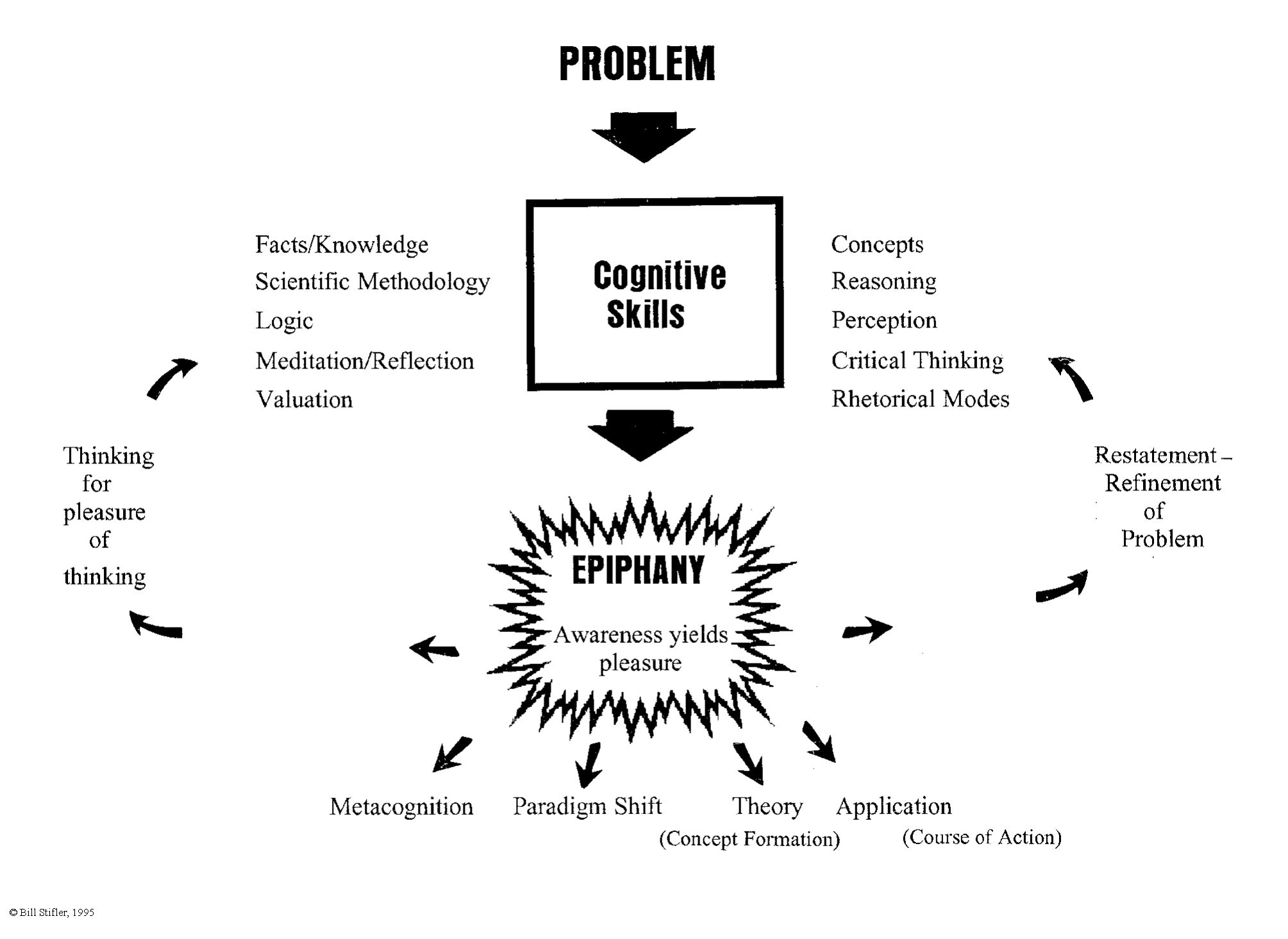
Critical thinking is a skill, requiring time and effort to learn. Fortunately, the various tools for critical thinking are applicable to all areas of study. Some fields of study are more dependent on some tools than others.
This web site includes many resources on critical thinking. Review the sections on Writing Process, Rhetorical Modes, Research Process, Literary Studies, and Mythology.
Proper Rest
Don't neglect the value of proper rest (and good diet). My first wife went to school with a girl who would put her notes under her pillow saying she was going to "sleep on them." She was obviously joking, but the reality is that, if you have been studying regularly or working on a problem, your mind will continue to work on the problem while you are sleeping. This is one of the ways that short term memory gets encoded as long term memory. In fact, a number of famous scientists have reported solving difficult problems in a dream.
Deduction and Induction
The two broadest categories of critical thinking tools are deduction and induction. Deduction involves taking a particular law, premise, principle or idea and using that to predict specific and particular results or data. Mathematics, history, philosophy, and theology depend primarily on deduction. Induction involves observing particular details in order to find a broad pattern of relationships that can explain the details. Science and the study of literature depend more on induction. Mathematics is an artificial system reducing the world to broad patterns of relationships that can be expressed symbolically. History examines the major events (and what constitutes a major event is usually based on a premise about the most, in the minds of the historians, significant influence of a particular period of time) and shows how the people, events, and culture shaped and influenced a particular period of time as well as how the people, events, and culture were themselves shaped by that period. Philosophy explores the categories of mind that affect people's understanding and perceptions of the world and themselves. Theology works to define the broad concepts that underlie the nature of the spiritual and its significance for human behavior.
Some fields of study move back and forth between these two broad categories. Writers begin with inductive approaches as they first start writing in the creative stage of writing and then shift toward a more deductive approach as they revise and edit their work in the critical stage. The writer begins like Sherlock Holmes, observing and recording data and from those observations determining their cause and significance (induction). Watson takes the results of Holmes' investigations and explains how those results were achieved (deduction). The process of writing is very similar to that.
The various sections of this web site examine some of the tools and outcomes of critical thinking on various disciplines. Rather than belabor those ideas, I encourage anyone interested in developing their critical thinking skills to explore the various sections of this web site and practice the skills explained. In many ways, this entire web site focuses on the processes and applications of critical thinking.
Resources
In fifth grade, I purchased a Scholastic Book Services book by Donald J. Sobol titled Two Minute Mysteries. Inside were short mysteries containing the clues needed to solve them. Sobol also wrote the Encyclopedia Brown mysteries, which also contained the clues needed to solve the mysteries. I highly recommend them for practicing some basic critical thinking. They would also make great gifts for children. They can be found any number of places including here at ThriftBooks. My favorite mysteries were always those that included the clues to solve the mystery, like Rex Stout's Nero Wolfe novels. I liked Sherlock Holmes, but I always felt cheated that I wasn't provided the clues until after Holmes explained his conclusions to Watson.
Two books from a Christian perspective by James W. Sire that some may find useful are listed here. Scripture Twisting examines logical fallacies made by people reading the Bible. How to Read Slowly suggests methods for reading and understanding materials from a Christian perspective.
Sire, James W. How to Read Slowly: A Christian Guide to Reading with the Mind. Downers Grove, IL: InterVarsity Press, 1979.
---. Scripture Twisting: 20 Ways the Cults Misread the Bible. Downers Grove, IL: InterVarsity Press, 1980.
